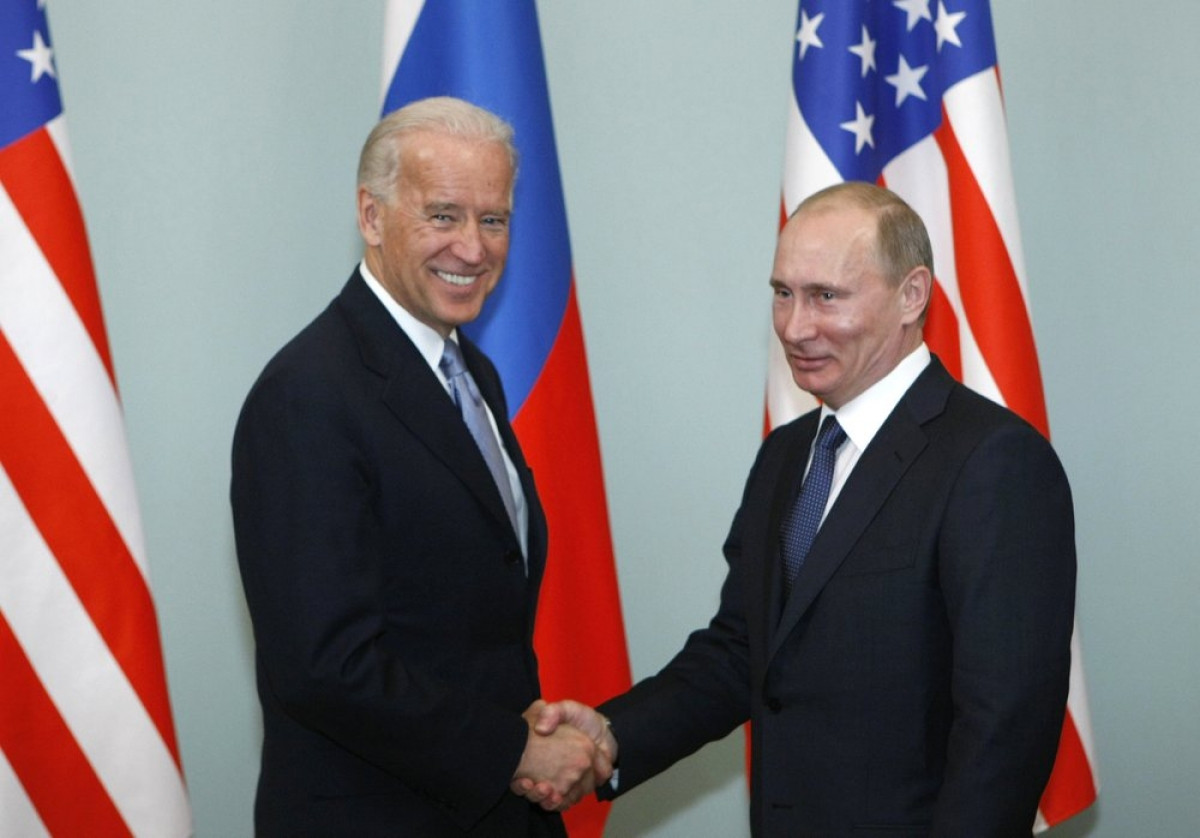Phone call reveals trend of US-Russia relations in the near future
The first phone call between President Biden and President Putin is said to reverse Mr. Trump's "tone" and reveal changes in Russia-US relations.
Biden - Putin's first phone call
US President Joe Biden and Russian President Vladimir Putin held their first phone call on January 26, focusing on major issues of mutual concern. Although Washington and Moscow emphasized different issues, both sides showed that their relationshipRussia - Americawill be clearly directed, at least under the Biden administration.
 |
| Vice President Joe Biden shakes hands with Russian Prime Minister Putin in Moscow, Russia on March 10, 2011. Photo: AP |
The two sides have agreed to quickly complete the extension of the New START nuclear arms control treaty next month. Previously, the administration of former President Donald Trump withdrew from two important arms control treaties with Russia and the last treaty, New START, is also on the brink of collapse.
Unlike recent predecessors, including President Trump, Mr. Biden does not hope to “reset” U.S.-Russia relations but instead wants to resolve differences.
With an agenda heavily focused on domestic issues and decisions pending with Iran and China, direct confrontation with Russia is not what the US President is looking for.
Although the two leaders of the US and Russia agreed to cooperate to extend the New START Treaty before it expires on February 5 and to explore other aspects of potential strategic cooperation, the White House said Mr. Biden still has a clear stance on US support for Ukraine regarding the Crimea issue.
Mr. Biden also raised sensitive and controversial issues in the relationship between the two countries, such as the SolarWinds cyberattack with alleged Russian involvement, Russia's bounty to kill US troops in Afghanistan, accusations of Russian interference in the 2020 election and the poisoning of opposition figure Alexei Navalny.
"President Biden has made clear that the United States will act firmly to protect our national interests in response to Russia's actions if they harm our allies," the White House said.
According to US officials, last week, Russia requested a phone call between the two sides and although Mr. Biden agreed, he wanted to prepare personnel and exchange with European allies such as Britain, France and Germany before conducting this call.
Before talking with Mr. Putin, Mr. Biden also called NATO Secretary General Jens Stoltenberg to affirm America's commitment to the traditional alliance, which is considered a "bulwark" against Russia.
The Kremlin's statement on the phone call, although not mentioning the most controversial issues between the two sides, affirmed that the leaders discussed both sensitive issues on the international and bilateral agendas.
The statement also described the call as “frank and pragmatic” – a diplomatic way of saying tense exchanges. The Russian side also said that Mr. Putin congratulated Mr. Biden as the next president and “confirmed that normalization of Russian-American relations would serve the interests of both countries.”
Reversing Trump's "tone"
In general, conversations between Russian and American leaders are often highlighted by tensions between the two countries. However, in this case, the above phone call highlighted the differences in both stance and attitude between the administration of President Joe Biden and former President Donald Trump.
"We finally have a president who will confront Putin directly on substantive issues," said Alina Polyakova, president of the Center for European Policy Analysis in Washington.
According to analyst Alex Ward on Vox, the phone call between President Biden and his counterpart Putin not only marked a "new tone" but also showed a new era in Russia-US relations.
If Biden wants to be a transformative president in both domestic and foreign policy, he will need to seize the opportunity to thaw the current relationship with Moscow. It would therefore not be surprising if Biden pushes for a summit with Putin in Europe this year.
Maintaining a harmonious relationship with Russia would allow Mr. Biden to focus on competing with China, limiting the threat to NATO and achieving a real solution to the Ukraine problem. Either way, President Biden, still busy with restoring the economy, is unlikely to rush into a new foreign policy crisis with Russia.
In fact, the first phone call between the two Russian and US leaders has partly revealed the Biden administration's stance on relations with Russia. The US President will still maintain a tough policy towards the Kremlin on some issues but will strive to cooperate to address common concerns. Consultation and cooperation with allies is also a focus of Biden's policy and a strong reversal of the views of the previous administration. Domestic pressures on many fronts at this time as well as the US-China confrontation will clearly make Biden have a more flexible and multi-dimensional approach to Russia./.
